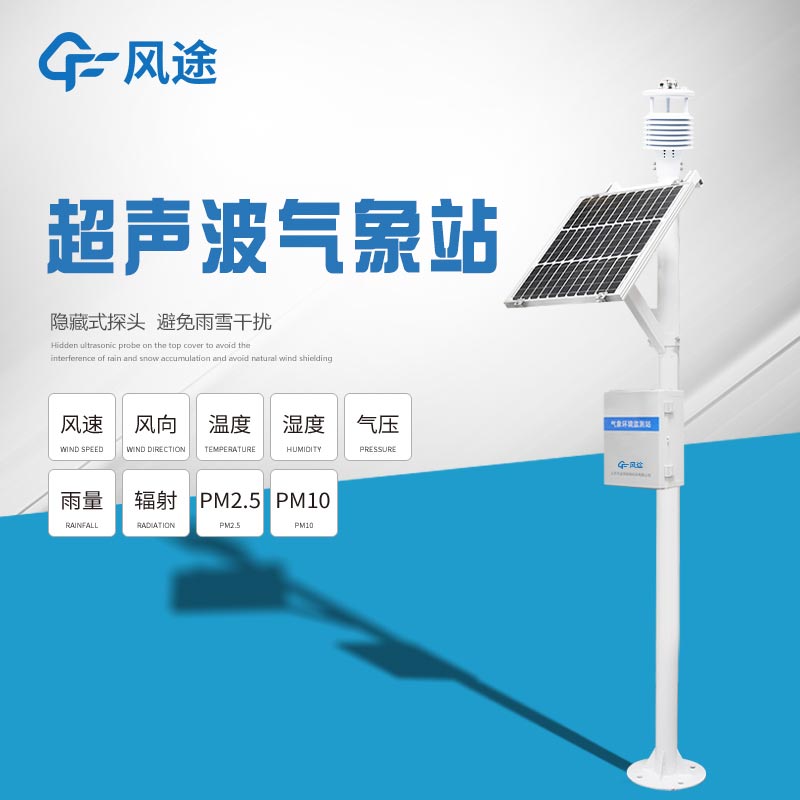Meteorological environment monitoring equipment supplier
Insist on doing high-precision customer favorite technology products
Ultrasonic weather station is a professional instrument that uses ultrasonic technology to detect climate-related parameters in a small range. By transmitting and receiving ultrasonic signals, it calculates various parameters based on the principle that the propagation speed of ultrasonic waves in the air is affected by meteorological factors such as temperature, humidity, and wind speed.
The parameters it can measure include temperature. The measurement range is generally around -40°C to 80°C, and the resolution can reach 0.01°C. Humidity can detect indicators such as relative humidity. The range is from 0% to 100%, and the resolution is about 0.01% RH. Wind speed and direction. The wind speed measurement range can reach from 0 m/s to more than 60 m/s, and the wind direction can be accurate to about 1°.
In the agricultural field, it can help farmers determine the best sowing, irrigation, and fertilization times in farmland or greenhouses, and adjust greenhouse ventilation and irrigation systems. In meteorological research, it is of great significance for the study of small-scale meteorological phenomena. It can be used to study the formation and change laws of local climate. For example, when studying the urban heat island effect, it is placed in different areas for observation. In the aspect of building environment monitoring, it can monitor the wind speed and direction around buildings and provide data support for building design and ventilation system design. In ecological environment research, it can be used to monitor the microclimate in nature reserves or ecologically fragile areas and provide a basis for studying the impact of microclimate in ecosystems such as wetlands on animals and plants, and contribute to ecological protection.
